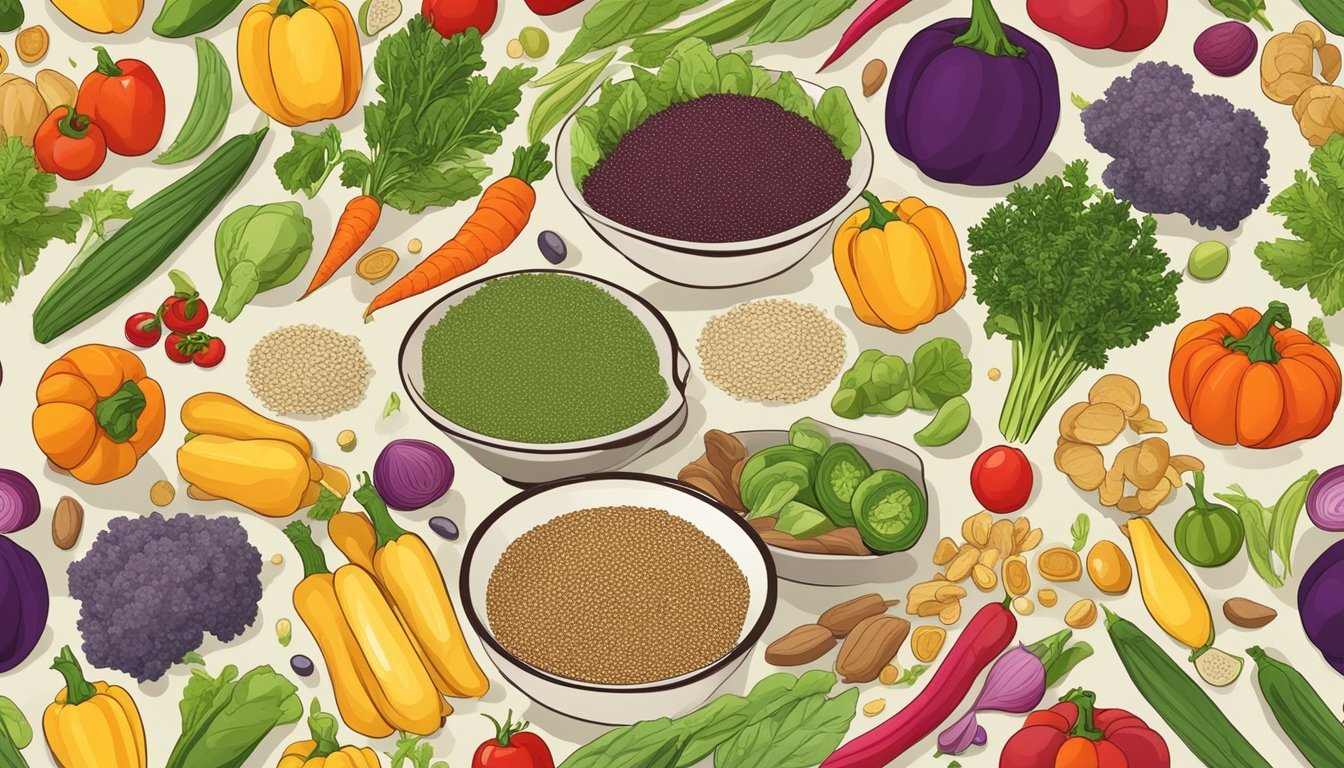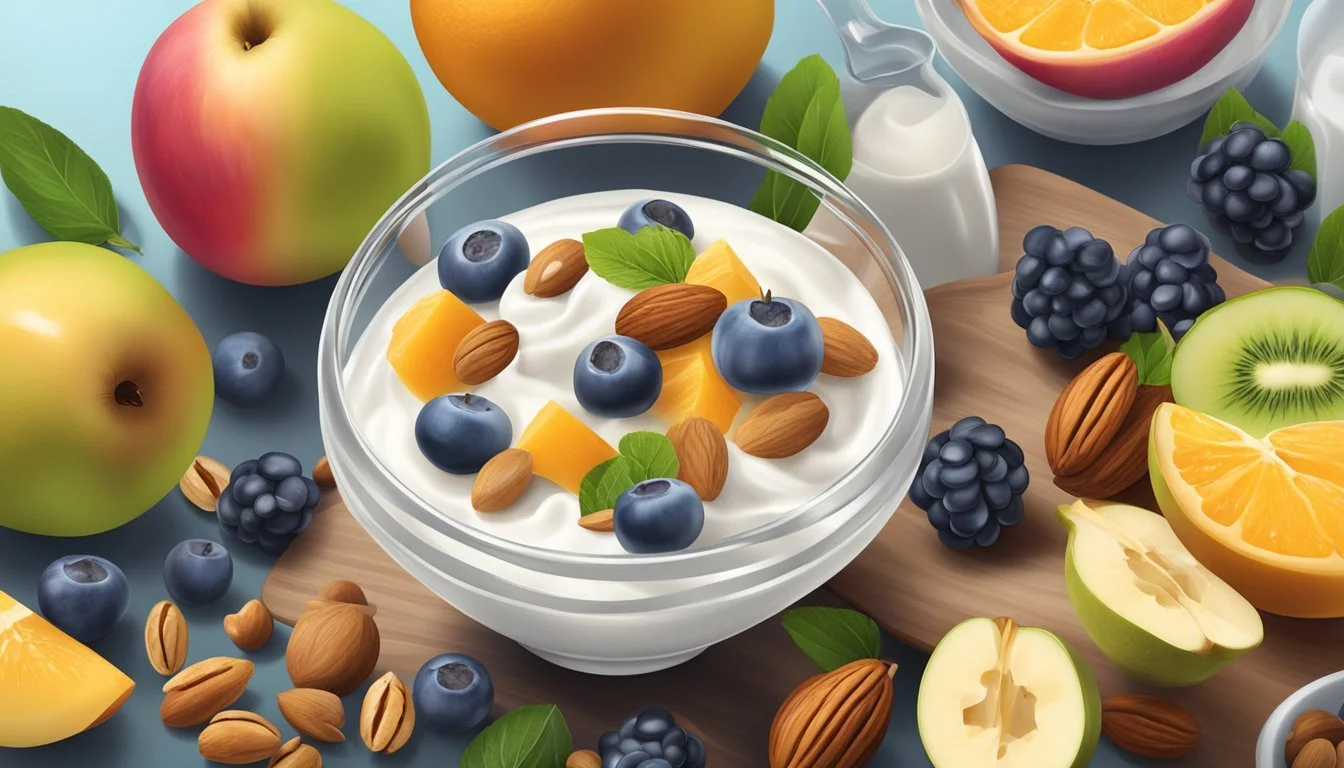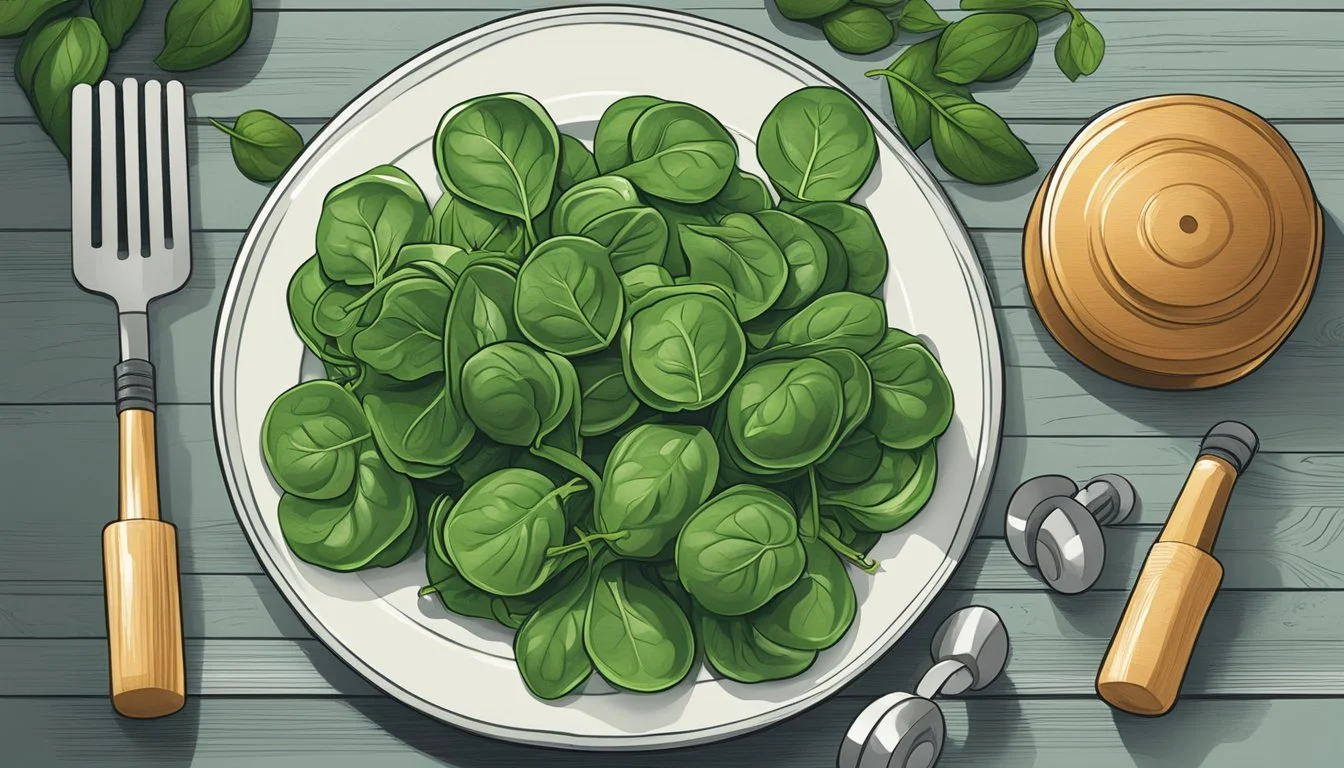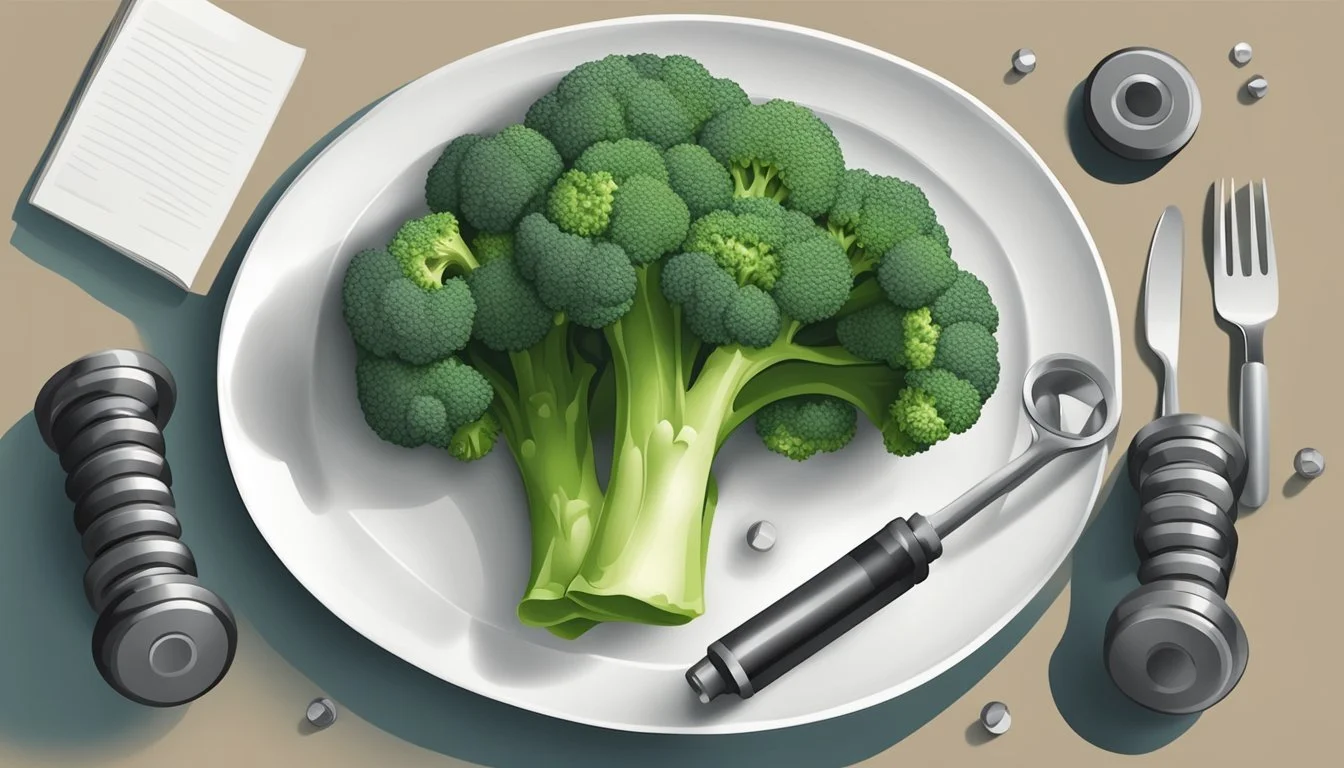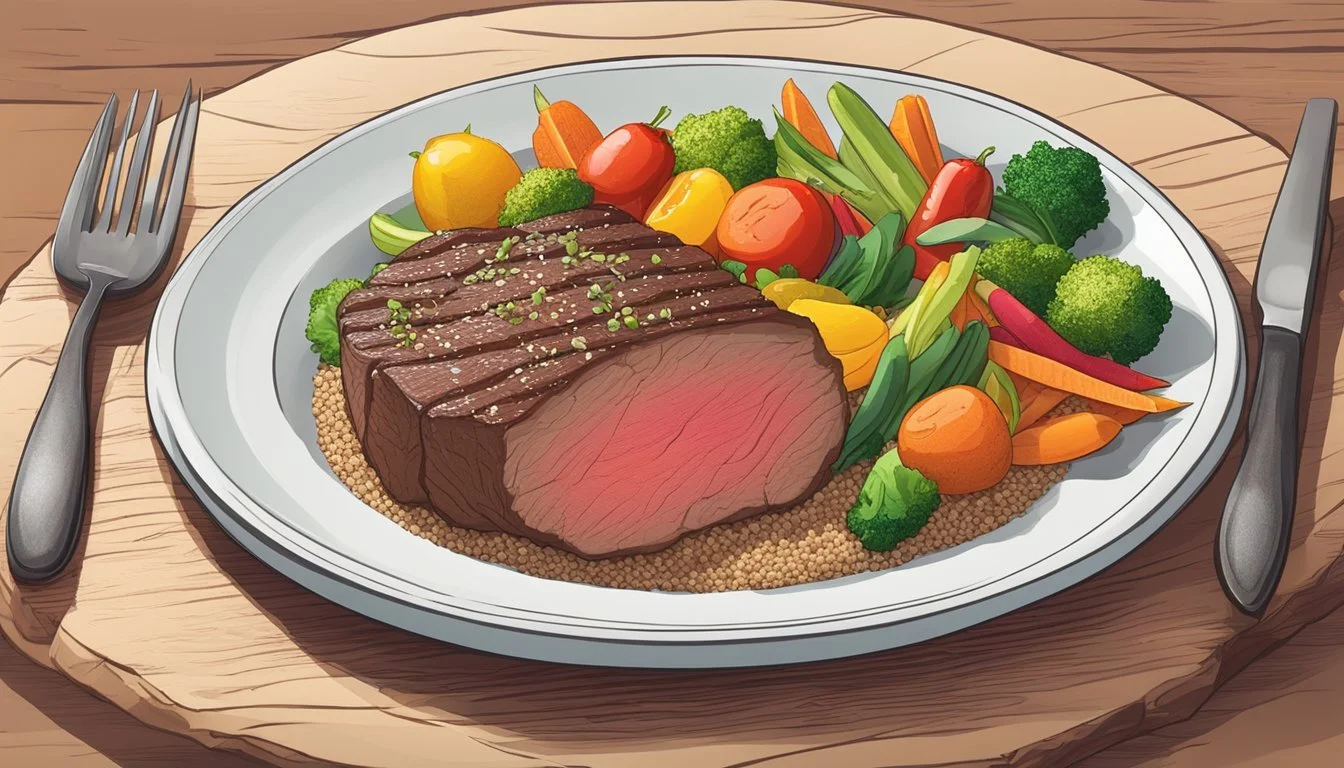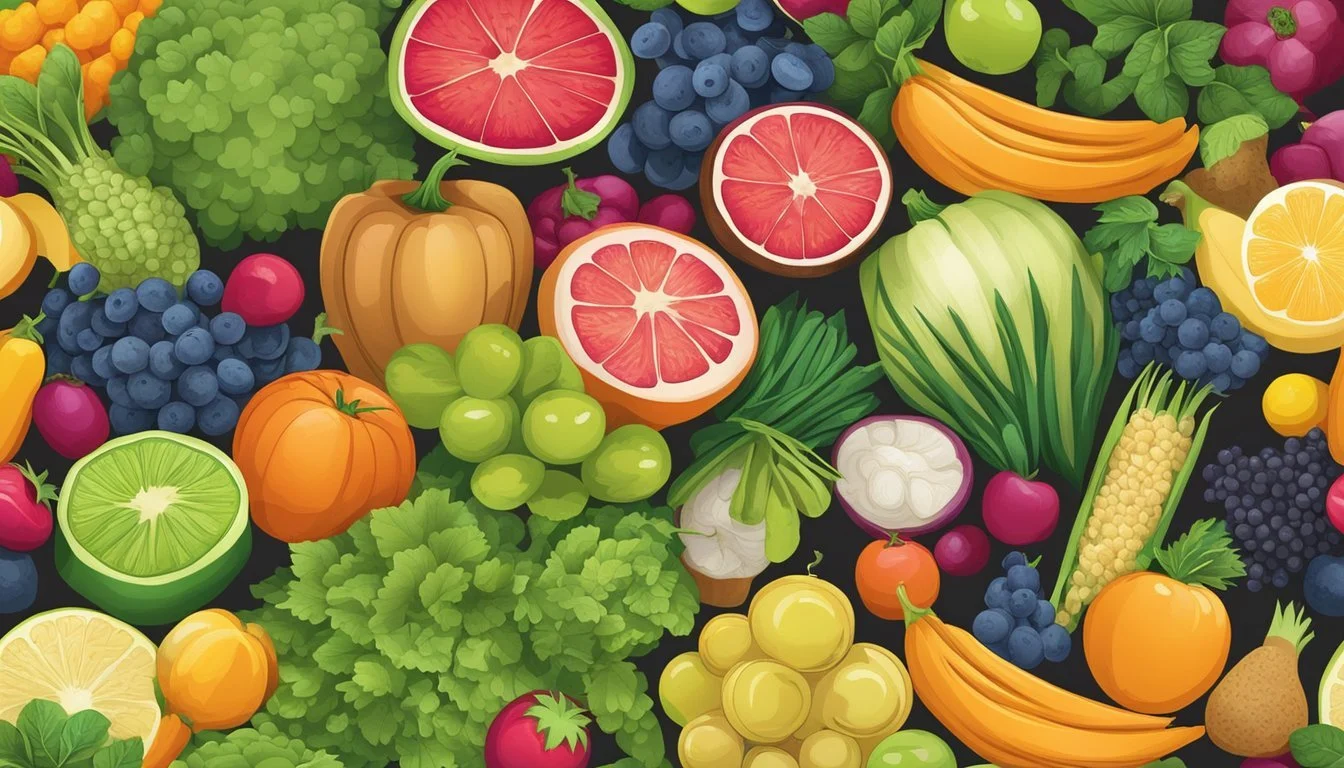Fueling Quad Power: Essential Foods for Stronger, Leaner Thigh Muscles
Nutrition plays a pivotal role in muscle growth and recovery, especially when it comes to building strong quadriceps. Consuming the right foods can significantly enhance workout performance and aid in muscle repair. Proper nourishment fuels the body to maximize the benefits of exercise and help achieve bigger, stronger quads.
This article will explore the types of food that are most beneficial for supporting the growth and strength of the quadriceps. By understanding which nutrients are crucial, individuals can make informed dietary choices that complement their fitness routines and lead to more successful outcomes.
1) Chicken Breast
Chicken breast is a lean source of protein that benefits muscle growth, including the quads.
With high biological value, the protein in chicken breast provides essential amino acids necessary for muscle repair and growth.
Chicken breast is low in fat and calories, making it a suitable choice for those aiming to build muscle without gaining excess body fat.
It contains important nutrients like B-vitamins and minerals such as phosphorus and selenium. These nutrients support energy metabolism, which is vital for physical training and quad development.
Due to its versatility, chicken breast can be included in various meals, from grilled chicken salads to stir-fries, providing both nutrition and variety.
2) Quinoa
Quinoa is a nutrient-dense food that provides numerous health benefits. It is an excellent source of protein, containing all nine essential amino acids, which is rare for plant-based foods. This makes it a valuable food for muscle repair and growth, including the quads.
Rich in fiber, quinoa helps with digestion and can reduce the risk of intestinal issues. The fiber content also promotes satiety, which can aid in weight management, an important aspect for maintaining healthy muscle mass.
Quinoa offers a variety of vitamins and minerals, including magnesium, iron, and B vitamins. Magnesium is crucial for muscle contractions, while iron supports oxygen transport to the muscles. B vitamins play a role in energy production, enhancing workout performance.
Quinoa also contains antioxidants, which help neutralize free radicals that can cause oxidative stress and inflammation in muscles. This reduces muscle soreness and promotes faster recovery after workouts, benefiting the quads immensely.
With its complex carbohydrates, quinoa provides a steady energy source, ideal for endurance and strength training. This helps sustain long workout sessions focused on building and toning the quads.
3) Sweet Potatoes
Sweet potatoes are an excellent food choice for supporting quad muscle health and recovery. They are rich in complex carbohydrates which provide a steady source of energy, essential for intense leg workouts.
These tubers are also packed with vitamins and minerals. High in vitamin A, sweet potatoes help with cell growth and repair, crucial for muscle recovery.
The potassium content in sweet potatoes aids in maintaining proper muscle function and reducing cramps. Potassium helps balance electrolytes, which can be lost during heavy sweating in workouts.
Sweet potatoes also contain antioxidants like polyphenolic compounds and anthocyanins. These compounds support overall muscle health and reduce inflammation, benefiting the quadriceps.
4) Greek Yogurt
Greek yogurt is an excellent food for supporting quad strength and health. Its high protein content aids muscle repair and growth, crucial for anyone engaging in strength training or regular exercise.
Containing a good amount of calcium and vitamins, Greek yogurt also helps in maintaining bone health. This is particularly beneficial for the quads, as they are heavily involved in many physical activities.
The probiotics found in Greek yogurt support gut health, which can indirectly enhance overall physical performance. A healthy gut aids in nutrient absorption, ensuring the muscles get the fuel they need for optimal function.
5) Spinach
Spinach is a powerhouse of nutrients that can benefit the quadriceps.
Rich in iron, spinach helps transport oxygen to the muscles, aiding in improved endurance. The presence of magnesium supports muscle function and recovery, making it a valuable addition to any diet focused on strength training.
Spinach also contains a significant amount of potassium, which helps maintain fluid balance and muscle contractions. This can prevent cramps and enhance overall muscle function.
With its high levels of vitamin K, spinach assists in bone health. Strong bones support better muscle attachment and leverage, contributing to more effective workouts.
The fiber content in spinach aids in digestion and nutrient absorption, ensuring that the body gets the essential vitamins and minerals needed for muscle repair and growth. This leafy green is easy to incorporate into various dishes, providing a versatile option for anyone looking to boost their quad strength.
6) Almonds
Almonds are a nutrient-dense food that can benefit those looking to strengthen their quadriceps. These nuts are rich in protein, which is essential for muscle repair and growth. A serving of almonds can help contribute to the daily protein intake needed for effective muscle development.
In addition to protein, almonds provide healthy fats. These include monounsaturated fats, which support overall cardiovascular health. Improved heart function can lead to better endurance and performance during physical activities.
Vitamin E in almonds acts as a powerful antioxidant. This helps reduce oxidative stress and supports muscle recovery, crucial for those engaging in regular strength training. Lower oxidative stress means muscles can repair more efficiently.
Almonds also contain significant levels of magnesium. Magnesium plays a key role in muscle contraction and relaxation. Ensuring an adequate intake of magnesium can help prevent cramps and promote better muscle function.
Fiber present in almonds aids in digestion and helps maintain stable blood sugar levels. Consuming almonds can help keep energy levels consistent, which is beneficial during workouts. This steady energy can enhance performance and endurance.
7) Eggs
Eggs are an excellent food choice for those looking to strengthen and build their quadriceps. Rich in high-quality protein, they provide essential amino acids necessary for muscle repair and growth.
Eating eggs can help improve muscle recovery after intense workouts. The balance of protein and nutrients in eggs makes them ideal for those engaging in regular leg exercises.
Vitamins such as vitamin D, found in eggs, support overall muscle function, including the quads. This nutrient is vital for the absorption of calcium, which is crucial for muscle contractions.
Eggs also contain healthy fats and various micronutrients like selenium and vitamin B12, further supporting muscle health. These elements combine to make eggs a powerful addition to a fitness-focused diet.
8) Broccoli
Broccoli is a nutrient-dense vegetable known for its numerous health benefits. Rich in vitamins C, K, and folate, it supports muscle repair and growth, which is essential for the quads.
Broccoli also contains significant amounts of fiber and beneficial bioactive compounds like sulforaphane. These compounds offer anti-inflammatory properties that can help reduce muscle soreness and improve recovery.
For athletes focused on quad strength, the carbohydrates found in broccoli provide a steady energy source. One cup of raw broccoli contains around 6 grams of carbohydrates and 2.6 grams of protein, aiding in muscle performance and repair.
Additionally, broccoli’s antioxidants help combat oxidative stress and inflammation, two factors that can impede muscle recovery. Including broccoli in the diet can thus contribute to maintaining healthy, strong quads.
9) Salmon
Salmon is a nutrient-dense fish known for its rich supply of high-quality protein. Protein is essential for muscle repair and growth, making it beneficial for those looking to strengthen their quadriceps.
Salmon provides omega-3 fatty acids, which have anti-inflammatory properties. These can help reduce muscle soreness and improve recovery time after intense quad workouts.
Salmon also contains vitamin D, which aids in calcium absorption. Proper calcium levels are crucial for muscle function, including the quadriceps. This vitamin can help improve muscle performance and reduce the risk of injuries.
Additionally, the vitamin B complex in salmon, particularly B3 (niacin), helps convert food into energy. This can contribute to better performance and endurance during leg exercises involving the quadriceps.
Including salmon in one's diet can support overall muscle health and provide essential nutrients that specifically benefit the quadriceps. Regular consumption can enhance muscle growth, recovery, and function.
10) Beef Tenderloin
Beef tenderloin is a nutrient-dense option for those looking to support muscle growth, especially in the quadriceps. This cut of beef is known for its tenderness and rich flavor.
Beef tenderloin is high in protein, essential for muscle repair and growth. Protein helps rebuild muscle fibers after intense workouts, making it an excellent choice for athletes.
In addition to protein, beef tenderloin contains important vitamins such as B12 and iron. These nutrients play a role in maintaining healthy muscles and aiding in overall physical performance.
It can be prepared in various ways, such as roasting or grilling, to achieve a flavorful and satisfying meal. Pairing it with side dishes like garlic mashed potatoes or grilled asparagus can complement the nutritional benefits and enhance the dining experience.
Nutrients Essential for Quad Strength
Strong quadriceps not only require effective training but also a diet rich in specific nutrients. Key nutrients like proteins and carbohydrates significantly contribute to quad muscle health and performance.
Protein and Muscle Repair
Protein is crucial for muscle repair and growth. The quadriceps, being large muscles, demand a higher protein intake to recover from intense workouts. Foods like lean meats, fish, eggs, and beans provide essential amino acids that help in muscle protein synthesis.
Proper timing of protein intake is also important. Consuming protein-rich food within 30 minutes post-workout can enhance muscle recovery and growth. Additionally, whey protein shakes can be a convenient source if whole foods are not available.
Importance of Carbohydrates
Carbohydrates are the primary energy source for high-intensity training. They replenish glycogen stores in muscles, aiding in sustained performance and reducing fatigue. Whole grains, fruits, and vegetables are excellent sources of complex carbohydrates.
Carbohydrate intake should be adjusted according to activity levels. Consuming carbs before and after workouts ensures that the quad muscles have the necessary fuel for training and recovery. High-glycemic carbs like bananas immediately post-workout can accelerate glycogen replenishment.
Vitamins and Minerals for Healthy Quads
To support strong and healthy quadriceps, certain vitamins and minerals are essential. Highlighting the crucial roles of vitamin D and calcium, this section focuses on specific benefits for muscle function and strength.
Role of Vitamin D
Vitamin D is vital for muscle health and performance. It helps with the absorption of calcium and phosphorus, which are essential for muscle contraction. A deficiency in vitamin D can lead to muscle weakness and an increased risk of injury.
Foods rich in vitamin D include fatty fish like salmon and mackerel, fortified dairy products, and egg yolks. For individuals with limited sun exposure, supplements may be beneficial. Adequate levels of vitamin D ensure efficient muscle recovery after workouts.
Calcium and Muscle Function
Calcium plays a crucial role in the contraction and relaxation of muscles. It is stored in the muscle cells and released during muscle contractions, making it indispensable for activities that engage the quadriceps.
Dairy products like milk, cheese, and yogurt are excellent sources of calcium. Leafy green vegetables, such as kale and spinach, also provide calcium. For those who are lactose intolerant or vegan, calcium-fortified plant-based milk and juices are good alternatives.
Regular intake of calcium helps maintain muscle function and supports overall muscle health, preventing cramps and fatigue associated with deficiency.


